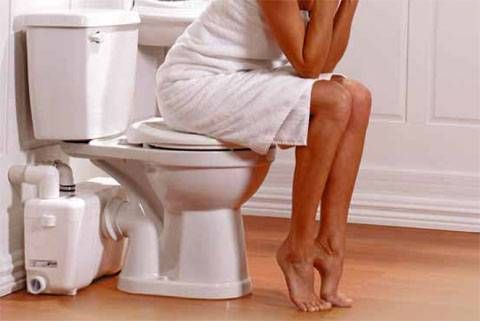Medical expert of the article
New publications
Bladder pain
Last reviewed: 04.07.2025

All iLive content is medically reviewed or fact checked to ensure as much factual accuracy as possible.
We have strict sourcing guidelines and only link to reputable media sites, academic research institutions and, whenever possible, medically peer reviewed studies. Note that the numbers in parentheses ([1], [2], etc.) are clickable links to these studies.
If you feel that any of our content is inaccurate, out-of-date, or otherwise questionable, please select it and press Ctrl + Enter.
Pain in the bladder may indicate problems with the bladder itself, as well as problems with neighboring organs, such as the kidneys, ureter, genitals, and coccyx. In chronic diseases, painful sensations in the bladder are constant, and painful urges to urinate are often observed. Pain that occurs during urination indicates an acute disease of the bladder. If pain occurs during various types of movement, this most often indicates the presence of stones in the bladder.
The urinary bladder is one of the organs of the urinary system, a hollow muscular sac in its structure. It consists of five sections that pass into each other: the apex, the body of the bladder, the median umbilical ligament, and the bottom of the bladder.
Symptoms

Pain when urinating
In most cases, pain in the bladder during urination is associated with cystitis. The pain, the intensity of which increases due to the filling of the bladder, reaches a peak at the end of urination, and then subsides, indicates diffuse inflammation of the bladder mucosa. In severe forms of the disease, the periods are shortened, and the pain is almost constant. With cervical cystitis, pain occurs at the end of urination and continues for some time. Any form of cystitis is characterized by a triad of symptoms: painful and frequent urination, and the presence of pus in the urine.
Similar symptoms are also characteristic of cystalgia. This disease is characterized by the absence or insignificance of inflammation of the mucous membrane. The disease is diagnosed if complaints of pain in the bladder are the same as with cystitis, but there is no inflammation and pyuria. In this case, the patient is sent for cystoscopy.
If during urination a man's penis hurts, especially its head, this indicates stones in the bladder. The urethra becomes irritated and inflamed due to salts or stones coming out through it, which is the cause of pain.
Bladder pain not associated with urination
If pain occurs while walking, riding, or doing physical work, it indicates stones and is explained by their movement in the bladder cavity. The pain is acute and has a wave-like character. Also, if stones are present, an increased number of erythrocytes and leukocytes is observed in the urine.
Often, pain in the bladder is caused by prostate adenoma, as well as urethral stricture. In such cases, the patient experiences urinary retention and excruciating acute pain. The bladder protrudes noticeably above the pelvis. Patients report that they cannot urinate despite the strongest urge. In case of urination, the pain subsides for a short time. The intensity of the pain is so great that patients are ready to do anything, even surgery, to stop it.
Intense pain in the bladder and lower abdomen, unbearable urge to urinate that is impossible to do, drops of blood appearing instead of urine when straining, all these are signs of a ruptured bladder. And in such a case, immediate surgical intervention is required.
Also, pain in the bladder may be associated with the presence of a malignant or benign tumor in the patient, which is easily diagnosed by a specialist. In addition, it is caused by venereal diseases and infectious diseases of the genitals.
Who to contact?
Treatment bladder pain
If you and your loved ones have bladder pain, do not try to self-medicate under any circumstances. Only a qualified specialist can determine the cause of the pain and prescribe the correct treatment. Also, you should not delay diagnosis, and when going to the doctor, try to remember other signs of the disorder so that the diagnosis is made quickly and accurately. Since pain in the bladder can indicate a number of disorders in other organs, be prepared to visit various doctors, and not just a urologist.


 [
[